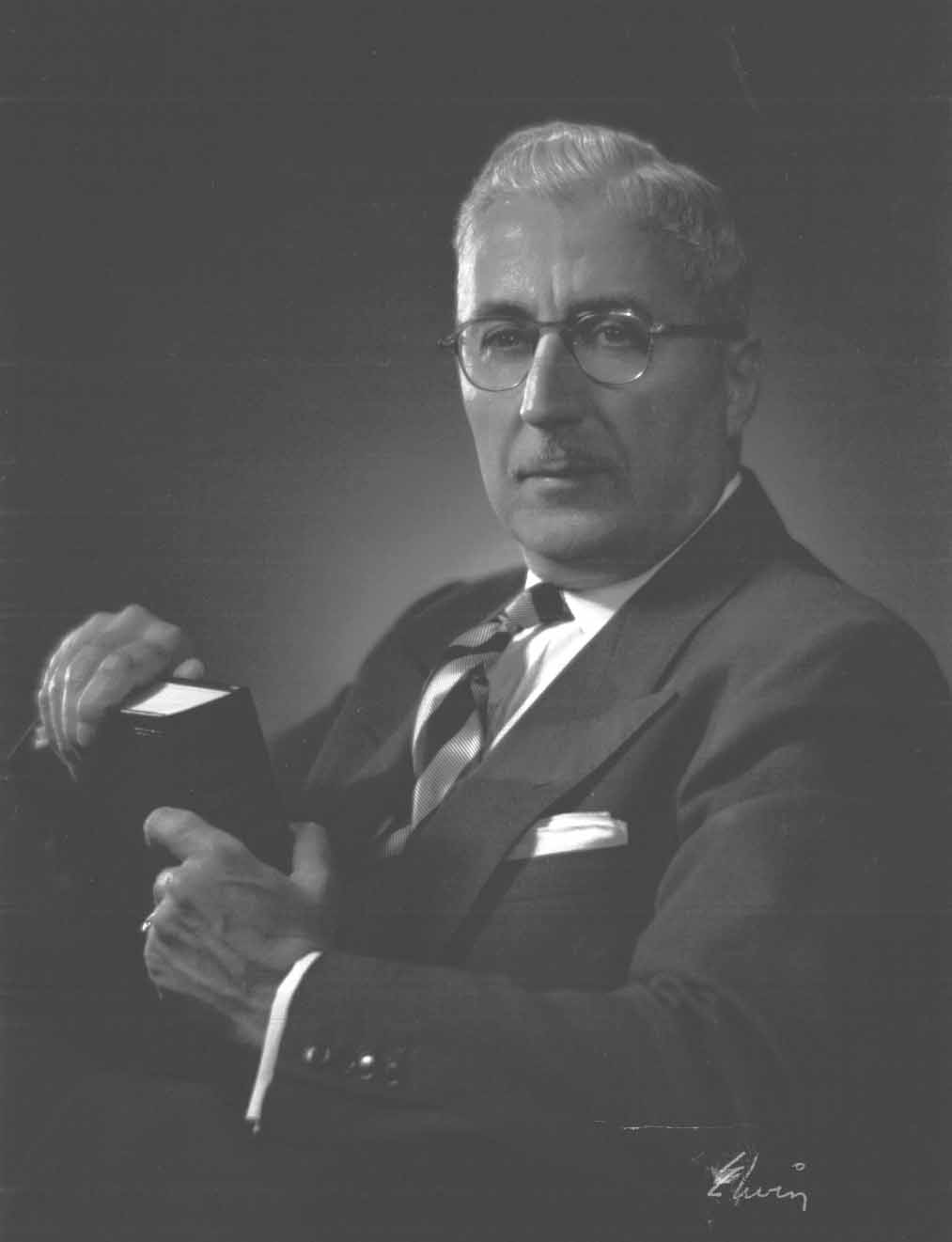Arnold Brecht
Arnold Brecht ( born January 26, 1884 in Lübeck, † September 11, 1977 in Eutin ) was a German -American jurist and political scientist. He was a leading official in the Weimar Republic and one of the few democratically minded top officials who advocated actively for the preservation of the Weimar Republic.
Life
Brecht was the son of Walter Brecht (1841-1909), director of the Lübeck- Büchener Railroad and a member of the Lübeck citizenship. After graduating from the Katharineum to Lübeck, he studied law in Bonn, Berlin, Göttingen and Leipzig, where he received his doctorate in 1906. In Bonn he joined the AMV Makaria, a musical fraternity in the Special Housing Association. In the years 1918 to 1933 he was first Reich officials and - after his politically motivated dismissal from the imperial service - as Prussian Ministerial and " full-time deputy member " section leader of the votes of the Prussian Ministry of State in the Imperial Council ..
Brecht was of 1932, the constitutional challenge to the legitimate Prussian government Brown / Severing before the State Court against the " Prussian coup " of presidential government Papen. After it was confirmed by the judgment of the Constitutional Court the government's right Brown / Severing, Prussia continued to represent the Imperial Council, Brecht took the vocal leadership of the votes of the Prussian Ministry of State again. In this role, he responded to the inaugural speech of Adolf Hitler in the Imperial Parliament on 2 February 1933. Hitler He called for the respect of law and order. Following the speech, Hitler left - obviously displeased - the session. The process led to an angry comment of the Nazi party organ Völkischer observers. Just a few days after he was dismissed from the civil service. The " sovereign government" Brown / Severing, whose interests had to be represented in the Imperial Council Brecht, this could not prevent because the personal sovereignty because of the " shock Prussia " was exercised by the used by the imperial government " Commissariat government."
Brecht emigrated to the United States, where he took over in New York at the New School for Social Research teaching duties.
Before the end of the Second World War, he was a sought-after consultant in American foreign policy and at the beginning of the 1950s, co-founder of political science in Germany. Brecht worked in an advisory capacity in the drafting of the Basic Law. He was appointed in 1953 with retroactive effect as State Secretary and was awarded the Federal Cross of Merit in 1959. He received this honor along with Eva Staudinger, her husband Hans Staudinger and Hans Simons, all three exiles in New York.
According to him, the Brechtian law was named.










